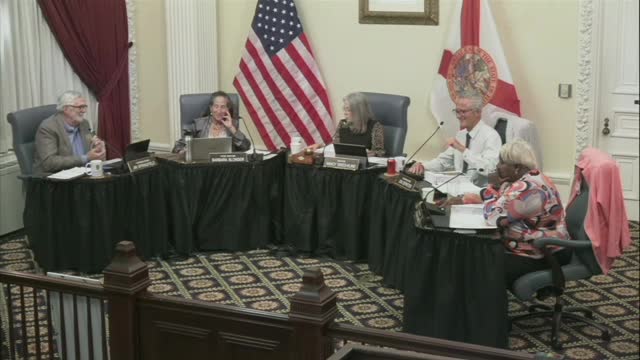St. Augustine City Council Amends Zoning for Archaeology Center at 241 West King Street
July 28, 2025 | St. Augustine, St. Johns County , Florida
This article was created by AI summarizing key points discussed. AI makes mistakes, so for full details and context, please refer to the video of the full meeting. Please report any errors so we can fix them. Report an error »

The St. Augustine City Commission made significant strides in urban development during its recent meeting, approving key ordinances aimed at enhancing city facilities and zoning regulations.
One of the most notable decisions was the approval of Ordinance 2025-11, which amends the zoning for approximately 15.71 acres at 1500 Arapahoe Avenue. This ordinance updates the current Planned Unit Development (PUD) classification, allowing for new developments that align with the city’s growth objectives. The motion passed with a majority vote, reflecting the commission's commitment to advancing local infrastructure.
In addition, the commission discussed Ordinance 2025-12, which proposes to change the land use designation for a 0.14-acre parcel at 241 West King Street from commercial medium intensity to public use. This change is part of a broader initiative to integrate the property into the existing government complex, paving the way for the construction of an archaeology center. This facility will not only house archival storage for archaeological artifacts but also provide office and community spaces. The Planning and Zoning Board (PZB) and the City’s Architectural Review Committee (CRC) have both reviewed and supported these developments, ensuring they meet the city’s aesthetic and functional standards.
The commission emphasized that the proposed archaeology center will enhance community engagement and preserve the city’s rich history. With adequate parking already in place, the project is set to move forward without logistical concerns.
As St. Augustine continues to evolve, these ordinances represent a proactive approach to urban planning, aiming to enrich the community's cultural and historical landscape while accommodating future growth. The commission's decisions reflect a commitment to fostering a vibrant and accessible environment for all residents.
One of the most notable decisions was the approval of Ordinance 2025-11, which amends the zoning for approximately 15.71 acres at 1500 Arapahoe Avenue. This ordinance updates the current Planned Unit Development (PUD) classification, allowing for new developments that align with the city’s growth objectives. The motion passed with a majority vote, reflecting the commission's commitment to advancing local infrastructure.
In addition, the commission discussed Ordinance 2025-12, which proposes to change the land use designation for a 0.14-acre parcel at 241 West King Street from commercial medium intensity to public use. This change is part of a broader initiative to integrate the property into the existing government complex, paving the way for the construction of an archaeology center. This facility will not only house archival storage for archaeological artifacts but also provide office and community spaces. The Planning and Zoning Board (PZB) and the City’s Architectural Review Committee (CRC) have both reviewed and supported these developments, ensuring they meet the city’s aesthetic and functional standards.
The commission emphasized that the proposed archaeology center will enhance community engagement and preserve the city’s rich history. With adequate parking already in place, the project is set to move forward without logistical concerns.
As St. Augustine continues to evolve, these ordinances represent a proactive approach to urban planning, aiming to enrich the community's cultural and historical landscape while accommodating future growth. The commission's decisions reflect a commitment to fostering a vibrant and accessible environment for all residents.
View full meeting
This article is based on a recent meeting—watch the full video and explore the complete transcript for deeper insights into the discussion.
View full meeting